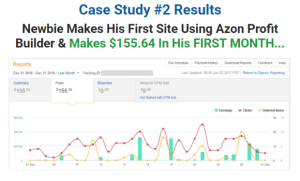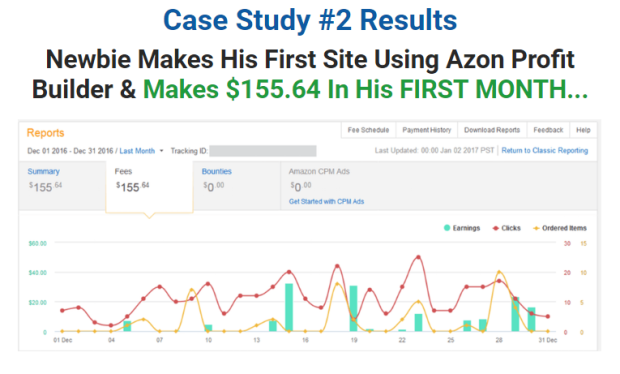As per Internet live stats, around 2 Trillion search queries are made every single day. And In all those, nearly 8{7dabfd103aa443fce219eea47f0f346a11a54ce587a1a0cbb74f06b9f7a304ca} is phrased as questions.
With metrics like this, it goes without saying that optimizing your sites for question keywords can be a massive benefit to your SEO strategies. Done right, you can generate tons of traffic, earn good Links, and easily convert traffic to a sale. Yup, it’s well worth your time to optimize your content to use more & more question keywords.
But hey, here’s a question: how to do it? How can we better ready our contents for Question keywords?
Come, let’s find out in detail.
Tips to Boost SEO with Question Keywords Optimization – Why it really matters?

With the rise of voice search, there is now a paradigm shift in how people are finding their answers.
Search queries are getting longer, taking on a conversational form – turning in to “LongTail” keywords.
As an SEO enthusiast, this should excite you, as long-tail keywords – when searched for – appear as a highlighted result that sits above the rest in a panel of its own. Given this standout nature, it’s naturally more likely to be clicked upon compared to the other results on the same page. You see the appeal here right? It’s SEO gold!
With their help you can;
- Improve organic rankings by better meeting user intent and context
- Earn rich results via structured data
- Show search engines your expertise in specific niches
- Offer opportunities for increasing UGC (user-generated content) in your sites
- Improve Local SEO
- Improve your site’s user experience, thus boosting conversions
Tips to Boost SEO with Question Keywords Optimization – all you need to know
Below, let’s look at all the top ways by which you can use these top keyword solutions to maximum effect, and earn a better SEO score.
However, don’t stuff things and get caught! Be natural!
1) Incorporate questions via FAQ (using FAQ schema)
Though quite odd, the sudden love for FAQ’s Google had a few years ago has since created many top opportunities for creators to earn tons of organic traffic via the use of question keywords in an effortless manner.
Creating an FAQ can be beneficial to your content in two different ways: (A) it can give you a place to integrate your question keywords & be liberal about it effectively. (2) It also helps to deliver exceptional value to your customers, as it allows you to address their grievances, huge doubts, and issues, etc. Both of these factors generate high SEO points & help’s you look great in Google’s book, leading to higher SERP rankings.
Heck, that not all! Other benefits include being able to “infuse” Links on to other pages within your answers – great for SEO. You can also use FAQ to mix and match with other Schema’s, creating Richer results – again great for SEO!
Indeed, FAQ’s bring great results to your SEO – when used appropriately, that is.
Be sure to add FAQs to product pages, location pages, or other top template pages for an enhanced position in the organic search results. That said; make sure not to overuse it as Google has begun cracking down on this for killing spam.
2) Implementing Q & A sessions on to your websites
The FAQ is not the only way to add question keywords into your content’s. There is another awesome way you can do the same. The best part? This new “Way” also allow you to develop user engagements with ease!
Remember, you don’t have to be the only one to answer the questions contained in your website. By opening up this space to your users to share their perspectives, you can create high valuable/engaging pages for SEO. In other words, this is a quick & easy way to allow users to create the content on your behalf – just be sure to moderate the user-generated content for quality & reliability of the highest order.
The art of creating premium quality Q&A differs depending on what the site in question is. For websites with a community aspect, you can seed question keywords into your forums, top message boards, or comment sections to spark “talk” amongst your users.
For eCommerce sites, on the other hand, you can trigger Q&A sessions to your product detail pages, and start the conversations by seeding commonly asked questions about the product on the branding’s behalf.
Whichever way you go, make sure the overall quality is high. Time & time again, Google has made abundantly clear that bad quality or non-moderated comments can SURELY bring down your SEO in a jiffy.
3) Adding Q&A to your Google my Business profile

Many people don’t know this, but if there are commonly asked queries about your online businesses at large, the” Google My Business” Q&A platform is a truly an outstanding yet comically underutilized resource to upload queries with good question keywords and answer them on behalf of your business & image (and earn SEO).
The nicest part about this is that anyone with a Gmail account can engage here, post questions, and answers about any business on this platform. In other words, there is nothing to stop you from including your own questions, or from someone you know, and then directly answer these posing as your business.
You can also “up-vote” these questions so that they get pinned to the front of your Google Business “Profile”. Indeed this is a great way to stay a step ahead of the conversation & grab control of your brand’s presence on the web.
Types of all the questions answered by Google (question keywords)
Now that you saw how to enhance your SEO with question keywords, here’s a look at the common types of “Queries” you need to work with.
1) Direct Answer Questions (start with “what”, “which”, “where”, “who”, “when”, and “why”, etc…)
These kinds of question keywords are meant to elicit a SINGLE answer – like “what is the name of the 7th planet?” with the answer being “Uranus”.
2) Short Answer Questions (starts with “Why”, “Can”, etc…)
Under FAQ, when a query like “why the sky is blue?” is asked, the answer is going to be returned on a SHORT snippet that’ll give the right explanation.
BTW, the answer is “Raman Effect” – look up the rest yourself)
2) Long Answer questions (start with “How to”, “How can”, etc…)
The answers to these kinds of question keywords are often long and may involve several steps, like the question “How to cook Pasta?” The searchers want to learn the procedure to cook pasta in a detailed manner. Google predicts this intent & looks for results that explain the process thoroughly in a simple yet detailed manner.
Tips to Boost SEO with Question Keywords Optimization – the Conclusion
At the end of the day, the above SEO enhancing tactics only scratches the surface of what you can do with good, reliable question keywords – fuelled SEO strategy that focuses on answering your audience’s queries.
If you know what your audience’s real needs and concerns are, question keyword SEO strategies can do wonders for you. Indeed, it can turn your SEO effort from good to excellent. Having superb content from your site showing up high in search results can obviously help you get more traffic and enough natural, high-quality links.
Finally, make sure you keep up to date with Google’s developments in this area as they’re constantly innovating every year.
Let me know what you think about ranking for question-based keywords, in the comments section below!
The post Tips to Boost SEO with Question Keywords Optimization – Why & How! first appeared on No Passive Income.
SOURCE: No Passive Income – Read entire story here.


















